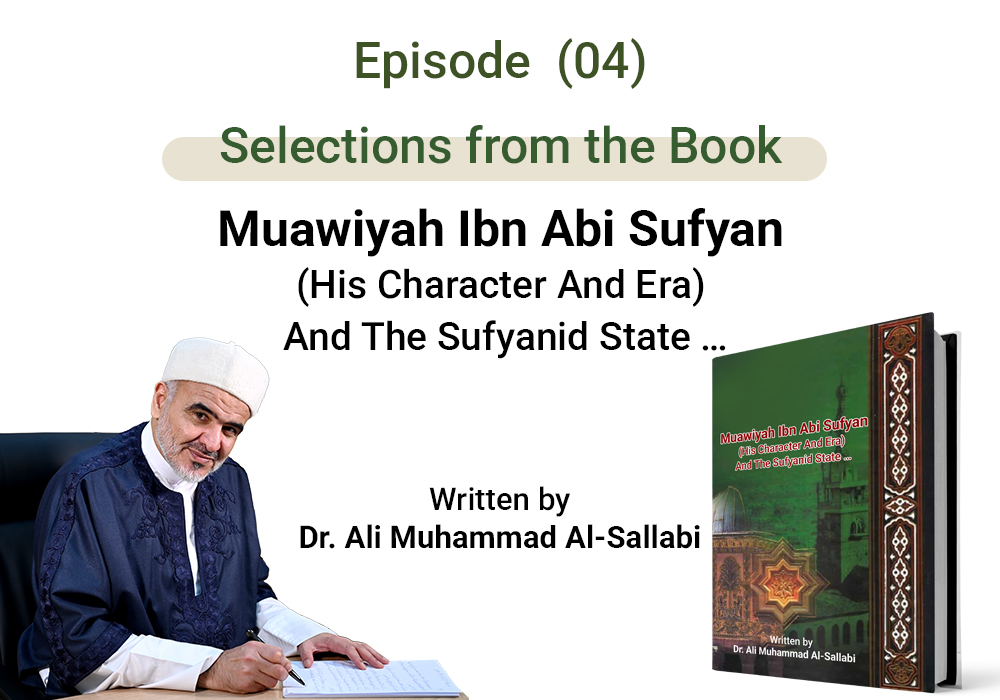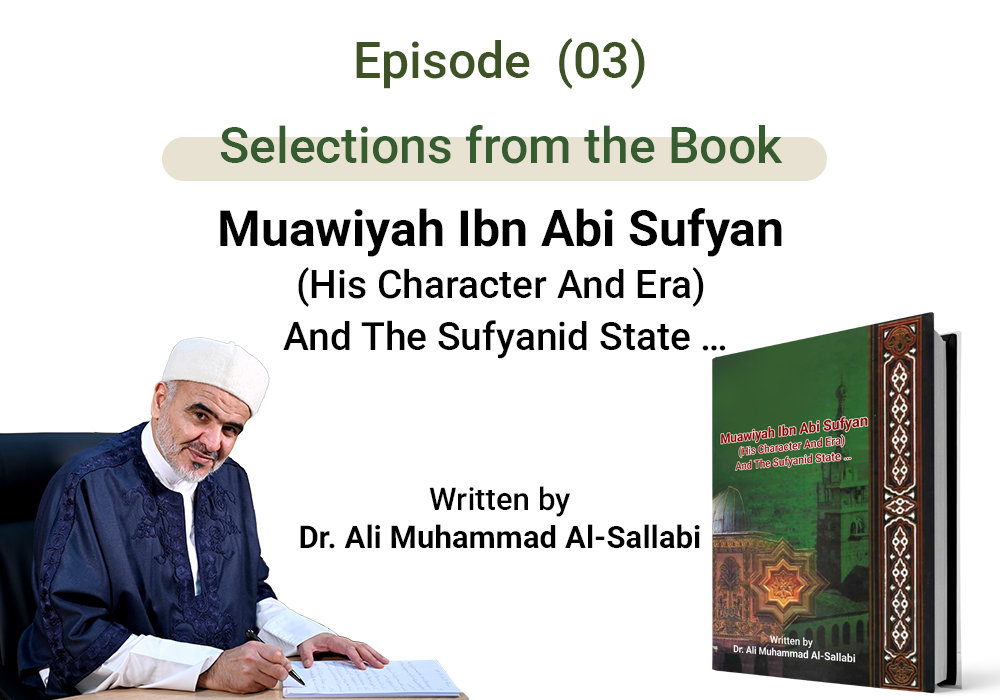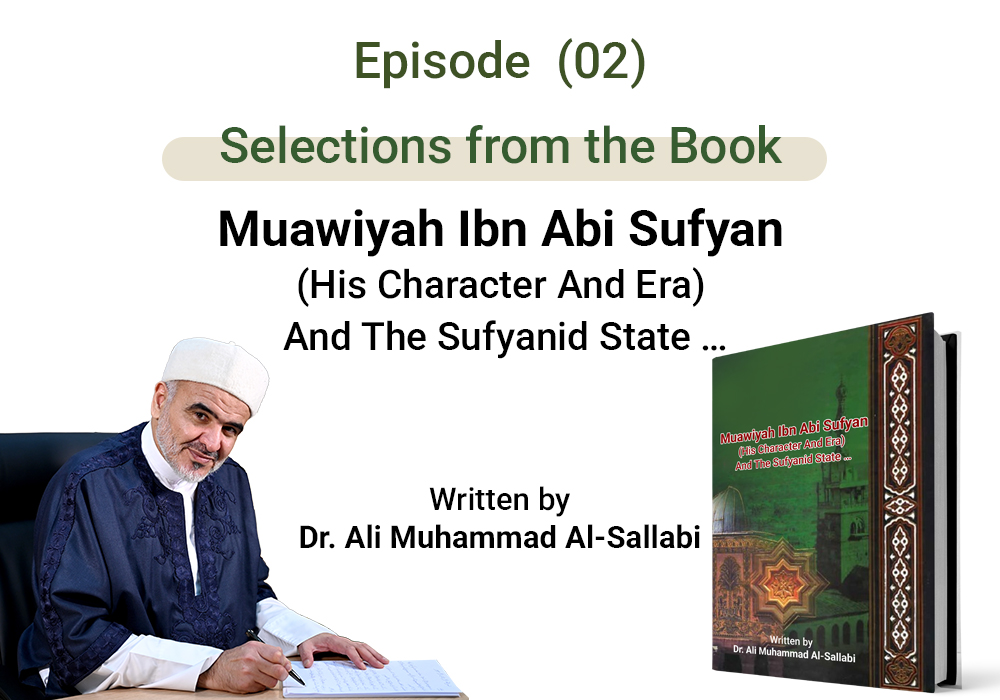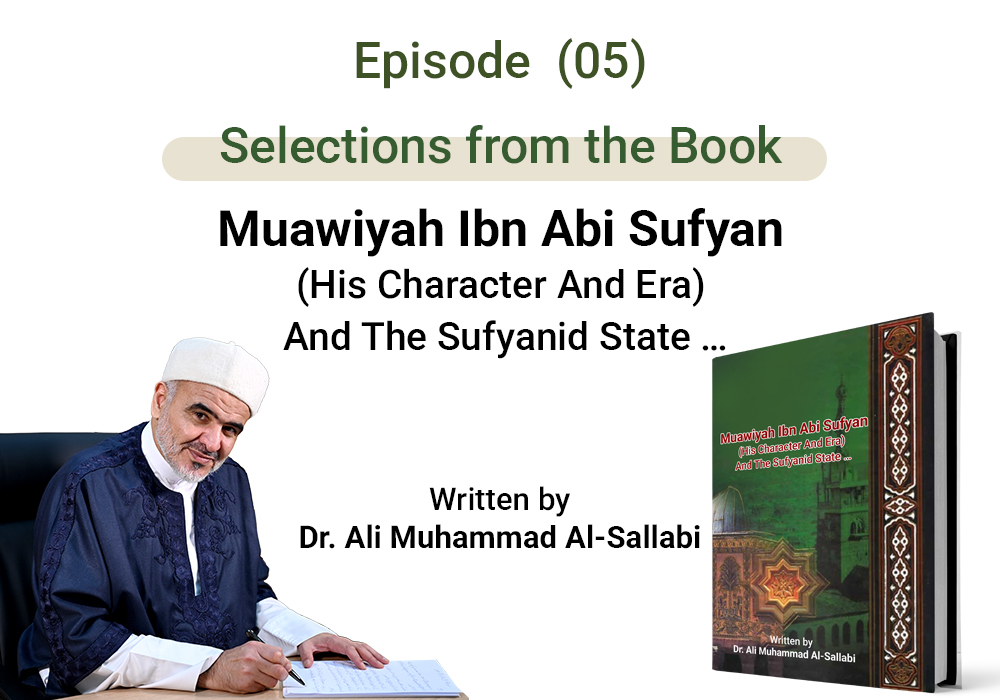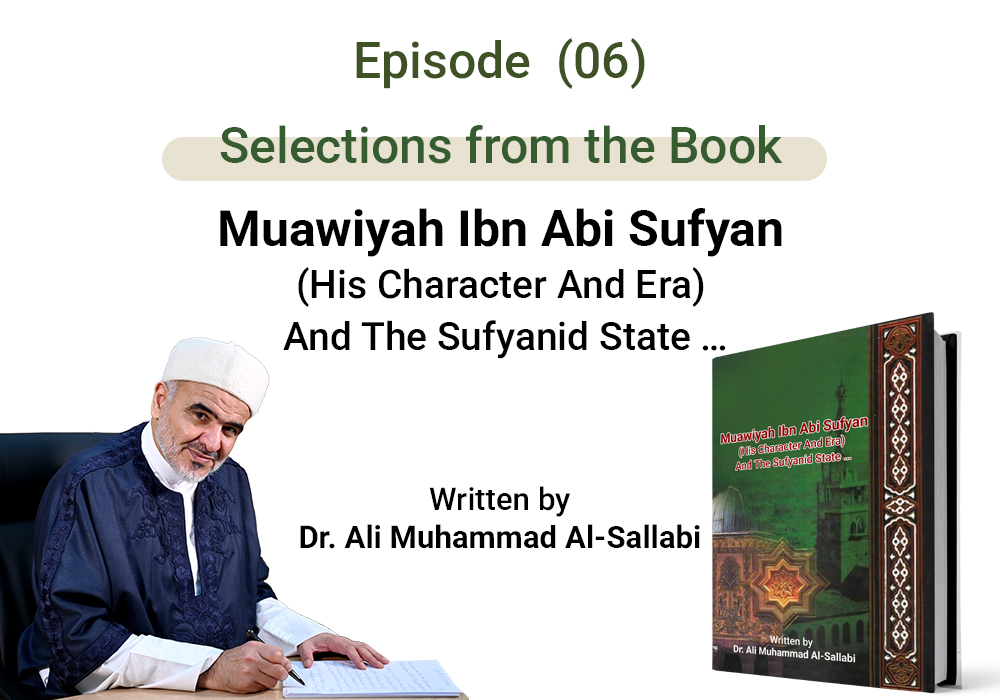The Conversion Of Muawiyah, may Allah be pleased with him, To Islam And Some Of His Virtues
Selections from the Book Muawiyah Ibn Abi Sufyan (His Character And Era) And The Sufyanid State …
Written by Dr. Ali Muhammad al-Sallabi...
Episode (04)
Muawiyah embraced Islam along with his father and his brother Yazid, may Allah be pleased with them, on the day of the Conquest (of Mecca)—this is the most well-known account. However, it is also narrated from him that he said: "I accepted Islam on the day of the Treaty—meaning during the Umrat al-Qada in the 7th year after Hijrah— But I concealed my Islam from my father. Then he found out and said to me: ‘This is your brother Yazid, who is better than you, and he is still following the religion of his people’. I replied to him: ‘I have not spared any effort for myself. Indeed, when the Messenger of Allah (peace be upon him) entered Mecca during the ‘Umrah of al-Qada, I already believed in him. Then, when he entered again during the Year of the Conquest, I openly declared my Islam. I went to him, he welcomed me, and I became his scribe.’"
Muawiyah, may Allah be pleased with him, also witnessed the Battle of Hunayn alongside the Messenger of Allah (peace be upon him), who gave him one hundred camels and forty ounces of gold.
Scholars have mentioned numerous virtues of Muawiyah, may Allah be pleased with him. Among these virtues are:
1- From the Holy Qur'an:
Muawiyah, may Allah be pleased with him, participated in the Battle of Hunayn. Allah the Exalted says: {Then Allah sent down His tranquility upon His Messenger and upon the believers...} [Surah At-Tawbah: 26]. Muawiyah was one of the believers who witnessed the Battle of Hunayn and upon whom Allah sent His tranquility, along with the Prophet (peace be upon him).
2- From the Sunnah:
A – The supplication of the Prophet (peace be upon him) for Muawiyah:
Among the Prophet’s supplications are his words:
"O Allah, make him a guiding one, a rightly guided one, and guide (others) by him."
And: "O Allah, teach Muawiyah the Book and arithmetic, and protect him from punishment."
B – The hadith narrated by Muslim from the path of Abdullah ibn Abbas, may Allah be pleased with them both: “I was playing with the boys when the Messenger of Allah (peace be upon him) came, so I hid behind a door. He came and tapped me gently and said: ‘Go and call Muawiyah for me’. I went and returned, saying: ‘He is eating’. He said again: ‘Go and call Muawiyah for me’. I went again and returned, saying: ‘He is eating’. Then he said: ‘May Allah not fill his belly.’”
Imam al-Nawawi commented on this hadith: Imam Muslim, may Allah have mercy on him, understood from this that Muawiyah was not deserving of a true curse or rebuke, which is why he included the hadith in the chapter of the virtues of the Companions.
Some scholars even considered this statement a merit of Muawiyah.
Ibn Asakir said about this hadith: “It is the most authentic narration regarding the virtue of Muawiyah. After it comes the hadith: ‘O Allah, teach him the Book’, and then the hadith: ‘O Allah, make him a guide and guided.’”
Al-Dhahabi said regarding the same hadith: “It may be said this is in fact a virtue of Muawiyah, based on the saying of the Prophet (peace be upon him): ‘O Allah, for any person amongst Muslims upon whom I hurl malediction or invoke curse or give him whipping make it a source of purity and mercy.’”
Shaykh al-Albani noted: “Some sects may try to use this hadith to criticize Muawiyah, may Allah be pleased with him, but the hadith offers no support for their claims—especially since Muawiyah was one of the Prophet’s scribes.”
As for the phrase “May Allah not fill his belly”, it was understood by some scholars to be a common Arabic expression, not meant literally—similar to phrases like: “May Allah fight him—how generous he is!” or “Woe to his mother—how brave he is!”— expressions which are rhetorical and not curses in intent.
C – Among the virtues of Muawiyah, may Allah be pleased with him, is what Al-Bukhari narrated through Anas ibn Malik, from his aunt Umm Haram bint Milhan, who said: “Once the Prophet (peace be upon him) slept in my house near to me and got up smiling. I said, 'What makes you smile?' He replied, 'Some of my followers who (i.e. in a dream) were presented to me sailing on this green sea like kings on thrones'. I said, 'O Allah's Messenger (peace be upon him)! Pray to Allah to make me one of them". So the Prophet (peace be upon him) prayed to Allah for her and went to sleep again. He did the same (i.e. got up and told his dream) and Um Haran repeated her question and he gave the same reply. She said, "Pray to Allah to make me one of them". He said, "You are among the first batch". Later on it happened that she went out in the company of her husband 'Ubada ibn As-Samit who went for Jihad and it was the first time the Muslims undertook a naval expedition led by Muawiyah. When the expedition came to an end and they were returning to al-Sham, a riding animal was presented to her to ride, but the animal let her fall and thus she died.
Ibn Hajar commented on the Prophet’s vision: “The statement, ‘Some of my followers who (i.e. in a dream) were presented to me sailing on this green sea like kings on thrones...’ indicates that the Prophet (peace be upon him) smiled in admiration and joy at the elevated rank he saw for them.”
D – Also narrated by Al-Bukhari through Umm Haram bint Milhan, may Allah be pleased with her, who said: “I heard the Messenger of Allah (peace be upon him) say: ‘The first army from my ummah to set out by sea has earned forgiveness or reward’. I said: ‘O Messenger of Allah, will I be among them?’ He said: ‘You are among them.’
Then the Prophet (peace be upon him) said: ‘The first army amongst' my followers who will invade Caesar's City will be forgiven their sins'. I asked, 'Will I be one of them, O Allah's Messenger (peace be upon him)?' He replied in the negative’”.
Al-Muhallab commented on this hadith: “This hadith is a virtue for Muawiyah, because he was the first to launch a naval expedition”
Additionally, Muawiyah, may Allah be pleased with him, was one of the scribes of revelation for the Messenger of Allah (peace be upon him). He also wrote the Prophet’s letters to the tribal leaders. His position as the Prophet’s scribe gave him a unique proximity to the Messenger (peace be upon him) during the period following the Conquest of Mecca until the Prophet’s death, which undoubtedly exposed him directly to the Prophet’s noble character and teachings, and allowed him to be influenced and shaped by the Prophet (peace be upon him) himself.
- Ali Muhammad al-Sallabi, Muawiyah Ibn Abi Sufyan (His Character And Era) And The Sufyanid State, pp. 65-70.
- Correctness in distinguishing the Companions (3/434).
- The Slandered Umayyad State, p. 145.
- The Beginning and the End (11/396).
- Fath Al-Bari on Sahih Al-Bukhari (6/22).
- Explanation of Sahih Muslim, by Al-Nawawi (16/165).
- History of Damascus (62/24).
- Biographies of the Noble Figures (14/130).
- The prohibition of insulting the Commander of the Faithful, Muawiyah, p. 69.
For further information and review of the sources for the article, see:
The Book of “Muawiyah Ibn Abi Sufyan (His Character And Era) And The Sufyanid State” on the official website of Sheikh Dr. Ali Muhammad al-Sallabi:


